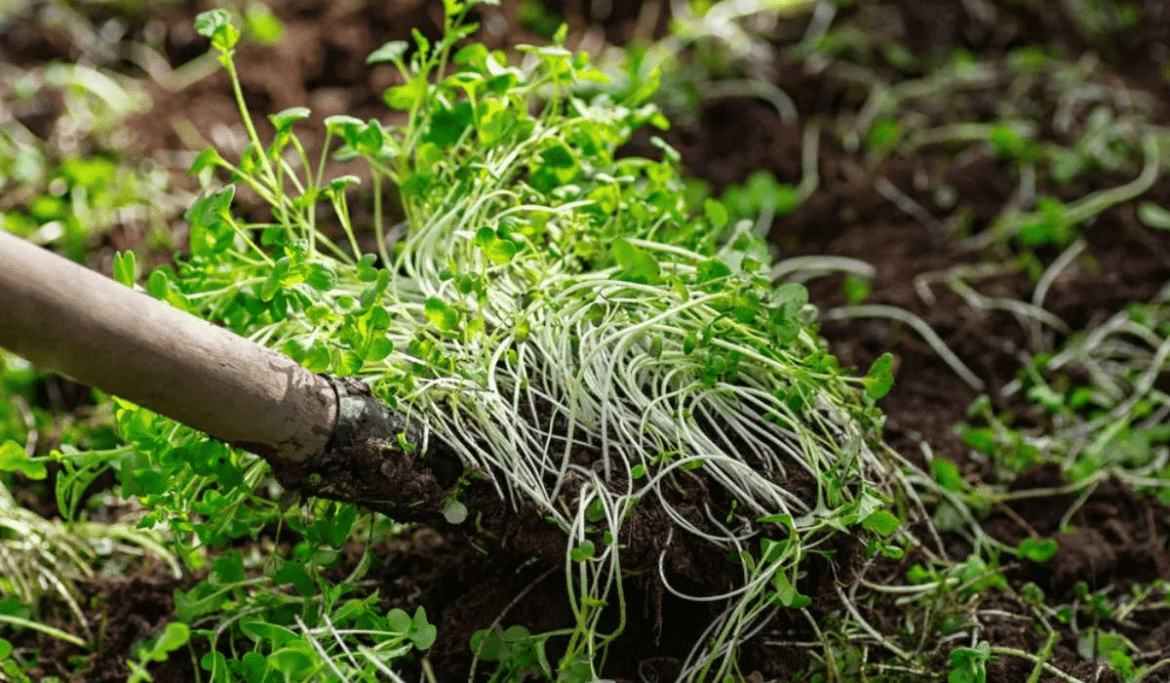AI Generated Summary
- In an effort to address the deteriorating soil health in Punjab, the state’s Agriculture Department is fervently advocating for the widespread cultivation of green manure.
- Mandeep Singh, from PAU’s Krishi Vigyan Kendra in Kapurthala, underscores the significance of green manure in bolstering soil fertility during idle periods, such as the gap between wheat harvesting and paddy sowing.
- Research conducted by Punjab Agricultural University (PAU) underscores the pivotal role of green manure in enhancing soil health, amplifying crop yields, and mitigating the detrimental impacts of brackish underground irrigation water.
In an effort to address the deteriorating soil health in Punjab, the state’s Agriculture Department is fervently advocating for the widespread cultivation of green manure. This strategic move comes as a response to the declining soil conditions attributed to the prevalent rice-wheat cropping system and the cultivation of high-yielding varieties.
A staggering 40 per cent of Punjab’s cultivated area grapples with brackish underground irrigation water, significantly impairing soil productivity and fertility. The adverse effects of this poor-quality water manifest in nutrient deficiencies, particularly in vital elements like iron, zinc, and manganese. The imperative to sustainably boost crop yields underscores the critical need to preserve soil fertility.
Research conducted by Punjab Agricultural University (PAU) underscores the pivotal role of green manure in enhancing soil health, amplifying crop yields, and mitigating the detrimental impacts of brackish underground irrigation water.
Pritpal Singh, from PAU’s Farm Advisory Service Centre in Bathinda, emphasizes, “To sustain soil health, incorporation of crop residues along with inclusion of green manures in crop rotation is of utmost importance. Among organic manures, the importance of green manure is manifold.” Singh highlights the symbiotic relationship between green manure crops and rhizobium bacteria, which enriches the soil with nitrogen content.
Among the array of green manure crops, including sesbania, sunhemp, clusterbean, cowpea, and moongbean, certain varieties stand out for their suitability and resilience. Gagandeep Dhawan and Harinder Singh, from PAU’s Krishi Vigyan Kendra in Kapurthala, advocate for timely ploughing, preferably before flowering, to maximize the benefits for soil health.
Sunhemp emerges as a preferred green manure crop due to its ability to generate substantial biomass with minimal water requirements and limited susceptibility to insect-pest attacks. Navneet Kaur emphasizes that sunhemp and sesbania exhibit robustness against poor-quality water and soil salinity, making them ideal choices for Punjab’s agricultural landscape.
The integration of green manure into cropping cycles augments nutrient storage in the soil and enhances nitrogen availability post-incorporation. Mandeep Singh, from PAU’s Krishi Vigyan Kendra in Kapurthala, underscores the significance of green manure in bolstering soil fertility during idle periods, such as the gap between wheat harvesting and paddy sowing.
PAU’s recommendations advocate for the cultivation of sesbania, sunhemp, cowpea, and cluster bean as green manure crops preceding rice cultivation. Angrej Singh, from PAU’s Farm Advisory Centre, underscores the superior attributes of sesbania and sunhemp, which yield abundant biomass in a short span and exhibit resilience to soil salinity, thus requiring minimal water input.
As Punjab grapples with the imperative to revive its dwindling soil health, the adoption of green manure emerges as a beacon of hope. With concerted efforts and informed agricultural practices, the cultivation of green manure promises a sustainable pathway towards revitalizing Punjab’s agricultural landscape and ensuring food security for generations to come.




